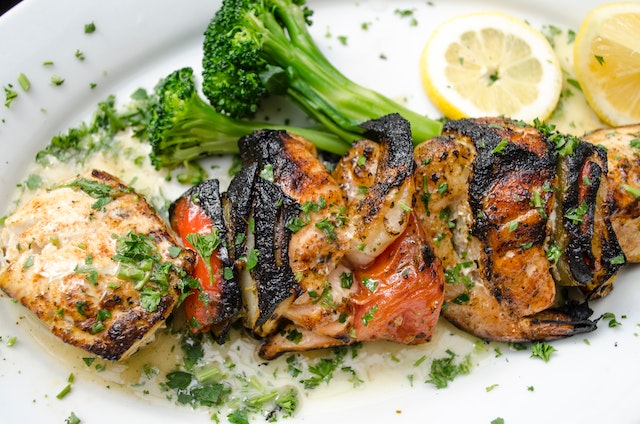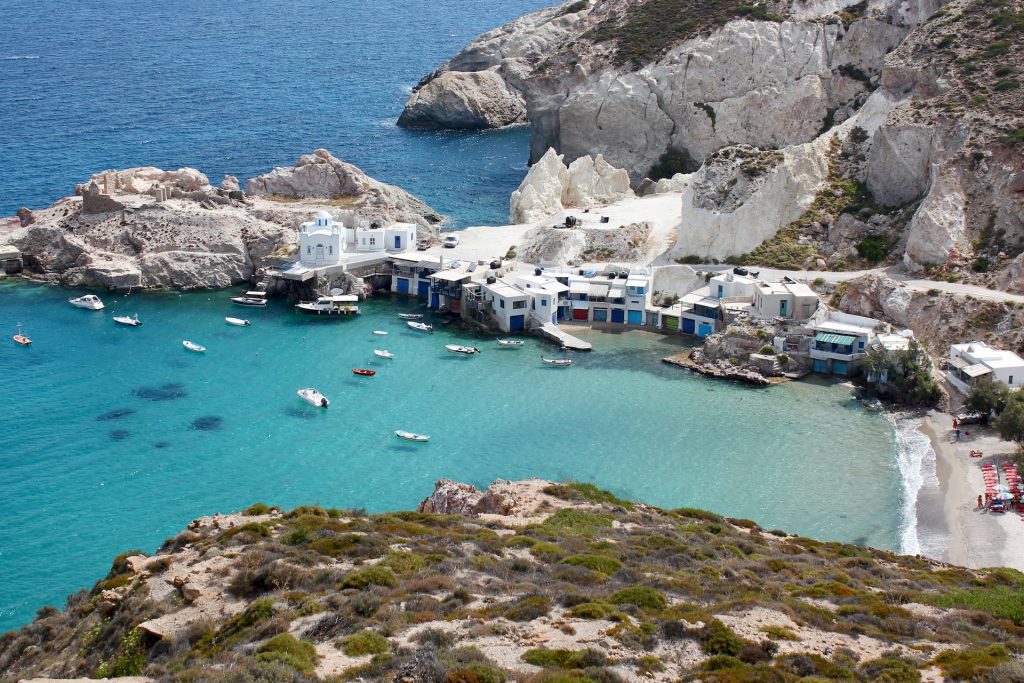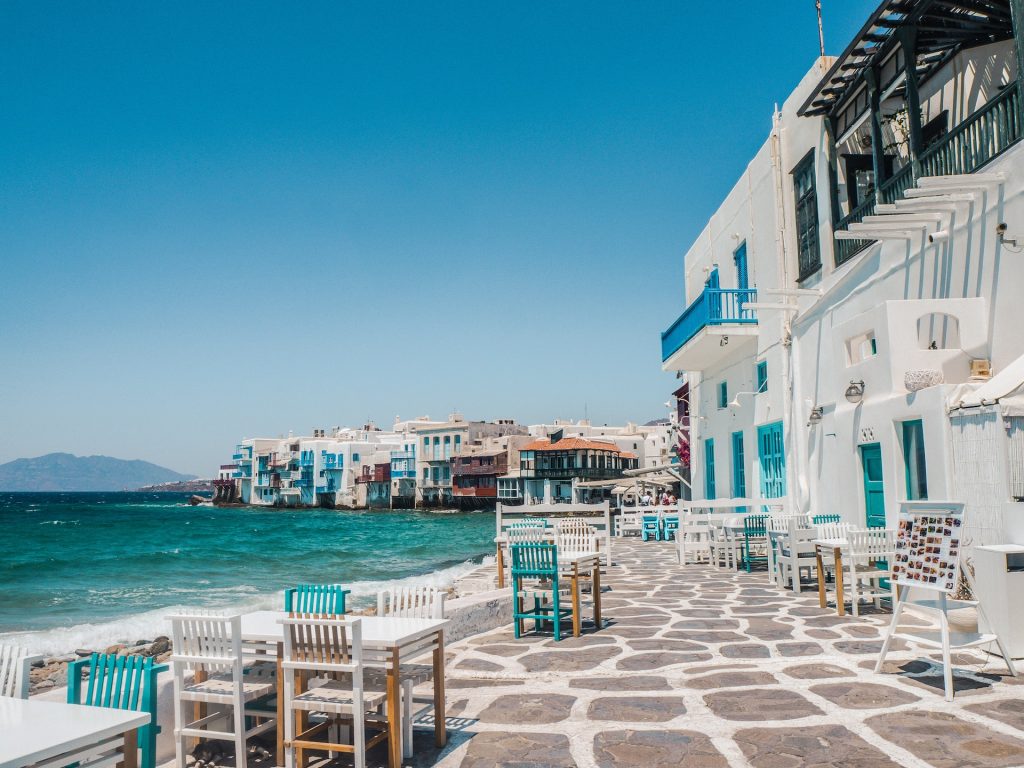
Greece’s food exhibits elements of its rich cultural history. The famous Greek Mediterranean food is a celebration of flavour-packed dishes made with fresh, straightforward ingredients and creative pairings. Greece’s food is as varied as its topography, with each region having its distinct tastes and specialities. With this foodie’s guide to Greece, you can travel to paradise and enjoy everything from the islands’ seafood to the hearty meals of the mainland.
One distinctive element of Greek cooking is the use of herbs and spices. Herbs are often used in Greek cuisine, and the country’s climate makes them grow well. Greek cuisine places a strong emphasis on using fresh, regional ingredients. Fresh seafood, feta cheese, olive oil, and other locally available ingredients are used in many classic Greek cuisines. As Greece has a long coastline and a long history of fishing, it should come as no surprise that seafood is an integral part of the Greek diet. The nation is also well known for producing some of the world’s healthiest oils, including olive oil.
Everyone’s favourite foodie’s guide to Greece
This detailed foodie’s guide to Greece will help you discover the world of Greek cuisine. You will embark on a gastronomic tour of Greece’s various regions and be introduced to some of the nation’s most well-known meals. There are some traditional foods you must try. Also, you can get advice on where to dine and drink well in Greece as well as knowledge of the local wine and spirit cultures. So, whether you’re a seasoned foodie or just starting your culinary journey, this foodie guide will help you discover the flavours of Greece.

Greek Meze
Meze is a term used to describe small dishes served as appetizers or snacks in Greece. They are often accompanied by a glass of ouzo or tsipouro (traditional Greek spirits). Meze dishes vary from region to region, but some of the most popular ones include:
- Tzatziki: A yoghurt-based dip with cucumber, garlic, and dill
- Spanakopita: A savoury pastry filled with spinach and feta cheese
- Dolmades: Grape leaves stuffed with rice, herbs, and sometimes meat
- Fava: A yellow split pea dip with onions and olive oil
- Octopus: Grilled or boiled and served with olive oil and lemon
- Saganaki: Fried cheese, often served with a squeeze of lemon
Greek Salad
The traditional side dish or main entrée in Greece is a Greek salad. The traditional Greek salad includes tomatoes, cucumber, red onion, green pepper, olives, and feta cheese, dressed with olive oil, lemon juice, and dried oregano. Some variations of the Greek salad include adding lettuce, capers, or anchovies.
Souvlaki
Souvlaki is a popular fast-food item in Greece that consists of grilled meat (commonly hog, chicken, or lamb) on a skewer and is frequently served with pita bread, tzatziki, and salad. You can also get souvlaki wrapped in a pita or tortilla with meat, salad, and tzatziki.

Souvlaki
Moussaka
Moussaka is a hearty casserole made with layers of eggplant, minced meat (usually beef or lamb), and a creamy bechamel sauce. It is often served as a main course and is a favourite comfort food in Greece.
Gyros
Gyros is a common street snack in Greece prepared from meat sliced and served in pita bread with tomato, onion, and tzatziki sauce. The meat used is typically pork, chicken, or lamb and is cooked on a vertical rotisserie.
Seafood
Since Greece is a sea-surrounded nation, it should come as no surprise that seafood is a mainstay of Greek cuisine. Octopus on the grill with lemon and olive oil is a popular Greek seafood dish, as is calamari with lemon and garlic sauce. You can find seafood saganaki, a shrimp dish with feta cheese and tomato sauce. There are also fried smelts that are served with lemon and olive oil.
Several tourists decided to settle in Greece because of how stunning the country’s landscapes were. As a result, if you fall in love with this nation and its delicious food after your trip, you can adapt easily to the change, especially if you decide to move to Greece from the US. If you’re wondering how to adjust when moving abroad, get in touch with the ex-pat community for some advice.
Desserts
The sweet and syrupy flavours of Greek desserts are legendary. Among the most popular Greek desserts are:
- Baklava: Layers of filo pastry with nuts and honey syrup
- Loukoumades: Fried dough balls served with honey and cinnamon
- Galaktoboureko: A custard-filled pastry with syrup
- Kataifi: A shredded filo pastry with nuts and honey syrup
Drinks
Greece has a rich tradition of producing wine, ouzo, and tsipouro. Nearly every region of Greece produces wine, and some of the most well-known types are Assyrtiko, Moschofilero, and Agiorgitiko. Northern Greece is home to clear, grape-based tsipouro and the country’s aperitif of choice is ouzo, a spirit with a strong anise flavour. Don’t forget to visit some vibrant places to enjoy Athens’ nightlife and sample some Greek wines if you’re staying in the capital of Greece.

Regarding beverages, Greece is also famous for its delectable coffee. Greek coffee is prepared by heating sugar, water, and finely ground coffee beans, and it is then served unfiltered in a tiny cup. It is a common method to start the day in Greece and has a thick, robust flavor.
Conclusion
Greece is a food lover’s heaven, offering a wide variety of tastes and meals to please any pallet. Greek cuisine offers a variety of foods for every taste, from heavy casseroles and seafood to meze dishes and salads. There is no shortage of delectable beverages to go with your dinner because of the long legacy of wine, spirits, and coffee. The next time you travel to Greece, make sure to savour the regional cuisine and explore the country like a true foodie; this foodie’s guide to Greece can be a good start.



